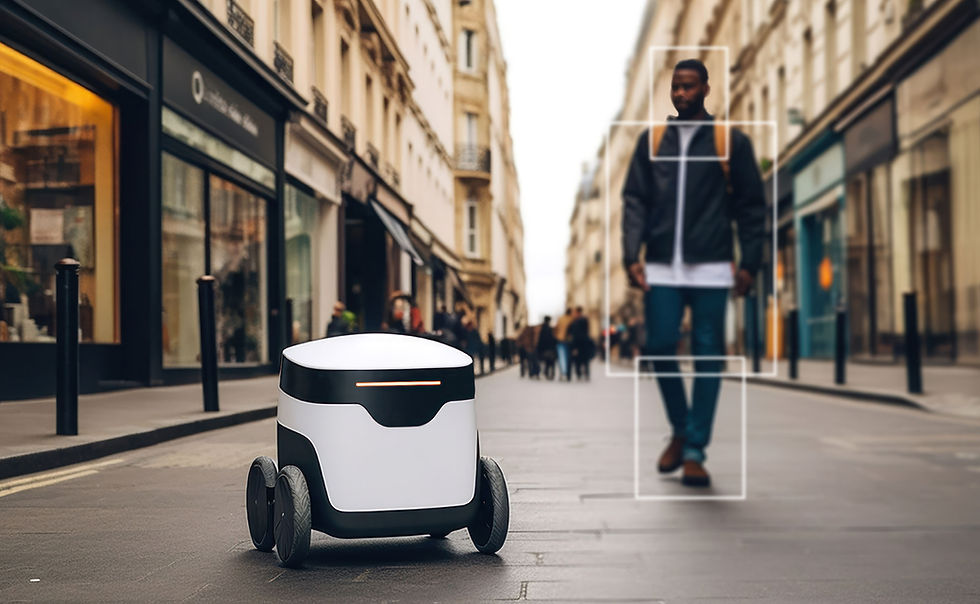Tech Trends to Watch: How AI and 5G Are Revolutionizing Web Design
- New Foundations Media
- Jul 9, 2024
- 2 min read
What’s up, Creatives! Let’s dive into the latest tech trends that are shaking up the web design world. Whether you're a seasoned pro or just starting, there's something here for everyone.
AI-Powered Design Tools

Artificial Intelligence (AI) is revolutionizing web design. Here’s how AI-powered design tools are making a big impact:
Automated Design Suggestions: Tools like Adobe Sensei and Canva’s Magic Resize provide smart suggestions to improve your designs.
Personalized User Experiences: AI learns about your visitors and creates personalized experiences for them.
Content Creation: Tools like Copy.ai and Jasper can quickly generate blog posts, social media content, and product descriptions.
The Impact of 5G on Web Design

5G technology is a game-changer for web design. Here’s how 5G is set to impact web design:
Faster Loading Times: With 5G, your website loads faster, even with high-quality images and videos.
Enhanced Mobile Experiences: 5G makes mobile browsing smoother and more reliable. This is crucial as more users access websites via mobile devices.
Virtual and Augmented Reality: 5G’s increased bandwidth makes VR and AR experiences more accessible, allowing you to offer virtual tours or interactive product demos on your site.
Voice Search Optimization for Web Design

Voice search is on the rise, thanks to smart speakers and voice assistants like Siri, Alexa, and Google Assistant. Optimizing your website for voice search is becoming essential. Here are some tips:
Focus on Natural Language: Use conversational language and answer common questions directly in your content.
Optimize for Featured Snippets: Structure your content to answer questions clearly and concisely, using headers to help search engines identify key points.
Local SEO: Many voice searches are for local information, like "best coffee shop near me." Optimize your website for local SEO by including your location and relevant keywords.
Increased Focus on Web Accessibility

Ensuring your website is accessible to everyone is more important than ever. Here are some key considerations for web accessibility:
Use Semantic HTML: Semantic HTML tags help screen readers understand your content’s structure. Use tags like <header>, <nav>, <article>, and <footer> to improve accessibility.
Provide Alt Text for Images: Always include descriptive alt text for images. This not only helps visually impaired users but also improves your SEO.
Keyboard Navigation: Ensure all interactive elements on your site can be accessed using a keyboard, including buttons, links, forms, and menus.
The Bottom Line: Why We Follow Tech Trends in Web Design
Following tech trends in web design is essential for creating websites that are not only visually stunning but also functional and user-friendly. Whether you're embracing AI-powered design tools, optimizing for 5G, incorporating voice search, or focusing on web accessibility, keeping up with these trends ensures your designs remain relevant and effective in a fast-evolving digital landscape.
What trends are you most excited about? Share your thoughts in the comments below!
Comments